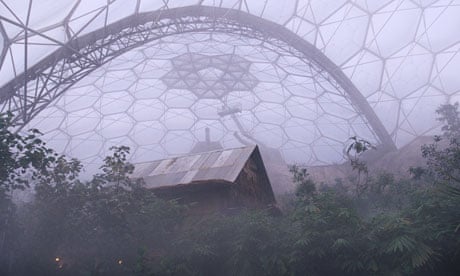By mass, 99.9% of the Earth is hotter than 100C. That means that not far below our feet is the power to boil unlimited water and generate clean, renewable energy. Is the UK throwing all it can at this extraordinary opportunity? Of course not, who do you think we are? Germans?
That contrasts strikingly with the more glamorous sister of deep geothermal energy, nuclear power. Both ultimately tap the heat generated by the decay of radioactive elements. Geothermal plants send water down holes to bring to the surface the heat from natural radioactive decay deep in the mantle. Nuclear power mines the radionucleides, concentrates them, sends them critical and then wonders what to do with the leftover mess - not very elegant by comparison.
The coalition government has pledged that nuclear power will receive no taxpayer subsidies. But it can receive financial support by other means which are subsidies in all but name.
So what support is there for deep geothermal projects? Nothing. As Tim Smit - founder of the Eden project where one of just two projects in the UK is sited - put it last night at a Renewable Energy Association event in Westminster: "I'd like the same 'lack of support' the government is giving to nuclear."
Geothermal energy has been tapped in the UK since Roman times, via the hot springs at Bath and elsewhere. Shallow geothermal projects - such as ground source heat pumps - are slowly growing. But even Decc's own and very conservative estimate is that deep geothermal - a few kilometres down - could provide 10% of the UK's electricity.
And how! It runs 24 hours a day, so perfect for baseload. The water circulates in a closed-loop, so it's clean and sustainable. It is virtually zero carbon and the plants have a small surface footprint, so it's pretty nimby-proof.
The catch is this: you'd be awfully brave to invest in it right now. Unlike most European nations, there is no licensing system in the UK. So you could sink your test wells at the cost of millions of pounds, find the right spot, then see someone else set up in the next field. There is no feed-in tariff support for electricity from geothermal. And the Renewable Obligation Certificates (Roc) support scheme is set at 2 Rocs, compared to the equivalent of 4 Rocs in Germany.
It's a familiar tale of German succes and British failure. Germany itself lags the leaders, the US and the Philippines, as well as El Salvador, Kenya and Papua New Guinea, but is the fastest growing in the world. It has about 150 projects in planning this year, representing a total investment of €4 billion, says Ryan Law, from Geothermal Engineering, which is developing the UK's other current project near Redruth, Cornwall. In terms of plants, Munich already has 24 alone, for both heating and electricity, he told me, adding that the geothermal potential for both countries is more or less the same.
Germany has invested about €10m a year in geothermal research since 2002: the coalition government cut in half the available funds to £1m and there is nothing more in the pipeline.
What is the government afraid of? The tiny earthquakes that some geothermal plants have triggered are surely less worrying than piles of nuclear waste, particularly in seismically stable country like the UK.
I'll declare an interest: I used to be a geologist and I like geothermal's style. It is simple and proven. And it has all of the advantages of the nuclear power coveted by successive governments, but none of the problems. And while the nuclear industry will benefit handsomely from low-carbon energy incentives, geothermal stands to get next to nothing. If there was ever a time to hold our minister's feet to a renewable fire, this is it.









Comments (…)
Sign in or create your Guardian account to join the discussion